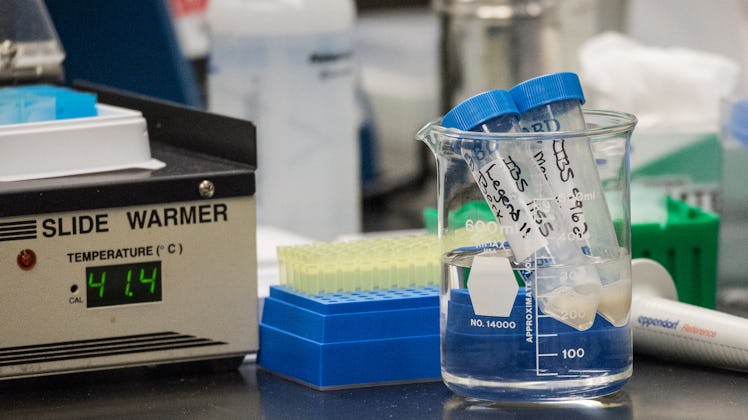When To Consider Freezing Your Sperm To Avoid Infecting Your Partner With Zika
Swimmers on ice.

Earlier this summer, athletes made headlines for freezing their sperm before heading to the Olympics in Rio de Janeiro, because Brazil is crawling (or, more accurately, flying) with the Zika virus. “A lot of sexual contact goes down at the Olympics. It’s a pretty young, healthy population for that,” Dr. Rebecca Flyckt, the Director of Fertility Preservation at The Cleveland Clinic Fertility Center, explains. Though Swimmers On Ice sounds like an Olympic event, in her experience, you don’t have to be an Olympian to consider this procedure yourself. Unless you’re no longer having sex, in which case you can stop reading.
Flickr / Colville-Andersen
According to Dr. Flyckt, there’s mounting evidence that Zika is sexually transmitted and stays in the male reproductive tract longer than the female tract. Seminal fluid with the virus first infects the mother, who can then pass it on to your unborn baby. As a result, men who aren’t done making tiny humans might want to consider taking special precautions if they’re traveling to any countries with Zika, and now maybe Florida, because that state just can’t catch a damn break. (But an outbreak? Sure!) If you’re in Illinois, it’s definitely something to consider after this week too.
Flickr / Global Panorama
Protecting your partner and unborn child is going to cost a few bucks. Flyckt estimates that between FDA required blood and urine tests (to make sure your sperm isn’t infected with any less exotic diseases) and the freezing itself, a couple could spend as much as $1,000 freezing a single sample and there are no guarantees it will be enough with which to get pregnant. On top of that, fresh sperm fares better than frozen, because some of your boys can lose their ability to swim in the thawing process. That’s pretty uncool.
Fortunately, there’s another option. “The poor man’s version is you travel, you come back and wait 2 months, monitoring for any signs or symptoms of infection,” says Dr. Flyckt. “To the best we understand right now, after 2 months you should be okay.” And the poorer man’s version? Skip the trip and just drive to a nearby beach, instead. Unless you live in Florida, in which case you should probably just move.
This article was originally published on